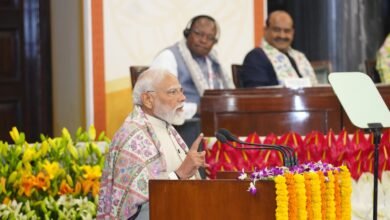“Digital Strength of Ex-Muslims : How the Internet is Challenging Orthodoxy in Islam”

By Agnibeena Ghosh
In the words of Iranian-born writer and rights advocate Maryam Namazie, the Internet is exerting a transformative influence on Islam, much like the way the printing press impacted Christianity in the past. Just as the printing press played a pivotal role in loosening orthodoxy’s grip on Christianity and disseminating enlightenment values, the Internet is now facilitating the widespread exchange of knowledge and information, transforming the landscape of faith, beliefs, and religious conversations, particularly within Islam.
Historically, the printing press revolutionized the spread of ideas within Christianity, ultimately contributing to the advent of enlightenment values. This innovation initially faced resistance from the Ottoman Empire, a major proponent of Islam at the time, which even imposed bans on printing presses. However, as the era of the printing press unfolded, the technology was eventually embraced and flourished within the Muslim world. Notably, the Holy Quran began to be printed in volumes, enabling wider accessibility and comprehension among the common people.
The advent of the Internet has brought a new phase of transformation. This digital medium enables real-time dissemination of knowledge and information, empowering individuals to access a wealth of resources in their own language, contributing to the democratization of religious discourse.
While the Internet has made it easier to disseminate religious teachings, it has also provided a platform for those who question or dissent from faiths. This phenomenon is particularly evident among those who have left Islam, often identifying as “Ex-Muslims” rather than simply atheists. This distinction stems from the significant risks associated with apostasy, the act of leaving one’s religion, in Islamic countries, where it can carry severe legal and societal consequences, including death.
The movement of Ex-Muslims began to gain traction primarily in Western countries, as individuals who had left Islam sought to challenge the faith and its teachings. Pioneers like Iranian-Canadian Ali Sina established online platforms to share their perspectives and experiences, inspiring a wave of Ex-Muslims to share their stories from the safety of their new secular environments.
The introduction of YouTube as a prominent digital medium played a pivotal role in this movement, particularly when Indian Ex-Muslims entered the scene. In 2020, these individuals began engaging in open discussions about the Quran, Hadith, and engaging in debates with clerics on social media. Despite concerns about potential retribution, these Ex-Muslims chose to remain anonymous, fearing violent backlash.
Critics, including Muslim leaders and clerics, have dismissed the Ex-Muslim movement in India as a mere “stunt,” arguing that their numbers are too small to be of significance. However, the movement has sparked ripples, if not yet waves, within one of the world’s largest religions. Islam is projected to become the most populous faith by 2035, surpassing Christianity, according to a 2017 Pew Research Center report. Nevertheless, there is an undercurrent of individuals leaving Islam, consistent with trends seen in other religions as well.
For instance, in the United States, around 23% of adults who were raised as Muslims no longer identify as members of the faith, according to a 2018 Pew Research Center report. Of those who left Islam, 7% cited disagreement with the teachings as a primary reason.
The reasons for individuals leaving Islam are multifaceted, ranging from theological disagreements to personal reflections on faith. However, the issue remains largely hidden due to the fear of social ostracism and even threats to life. Ex-Muslims often face the greatest threats from orthodox sects of Islam, making many hesitant to publicly disclose their beliefs. Even on social media platforms, they frequently resort to using pseudonyms and fake profiles to protect their identity.
The 2017 Coimbatore killing serves as a grim reminder of the perilous circumstances faced by Ex-Muslims. EA Jabbar, an Ex-Muslim and activist from Kerala, emphasizes the significant risks posed by orthodox elements of Islam, revealing the ongoing need for anonymity and caution among those who have left the faith.
In the age of the Internet, as the digital realm empowers individuals to explore and express their beliefs, it simultaneously highlights the challenges and consequences of questioning or leaving deeply entrenched religious systems. The Ex-Muslim movement in India stands as a testament to the complex interplay between faith, identity, and the transformative power of online platforms.
The content has been extracted from various sources and channel
News Mania Desk, / 29th August 2023






